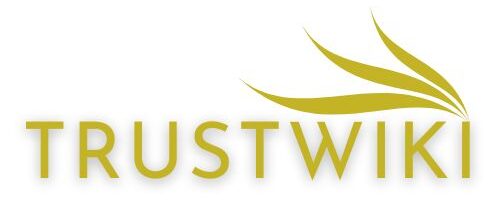The pathway to practicing pharmacy in Australia as an internationally trained professional involves navigating complex regulatory requirements and comprehensive assessments. Finding appropriate support and guidance through this process can dramatically influence both the timeline and likelihood of successful registration. Identifying the best overseas pharmacist registration in Australia programs requires careful evaluation of multiple factors beyond simple pass rates or course fees. The ideal registration pathway provides comprehensive preparation while accommodating individual learning needs and circumstances. With numerous providers offering varying levels of support, making an informed choice requires understanding the critical elements that contribute to successful registration outcomes for international pharmacy professionals.
Evaluate Program Accreditation and Recognition
When selecting a registration pathway or preparation program, verify its accreditation status with relevant Australian pharmacy authorities. Legitimate programs maintain recognition from organizations such as the Australian Pharmacy Council (APC) and alignment with Pharmacy Board of Australia requirements. This official recognition ensures the program’s curriculum addresses all competency standards required for registration.
Investigate whether the program regularly updates its content to reflect changes in Australian pharmacy legislation, clinical guidelines, and practice standards. High-quality providers demonstrate ongoing consultation with regulatory bodies and practicing pharmacists to maintain curriculum relevance. Check whether the program publishes transparent information about their accreditation status and relationships with regulatory organizations.
Assess Comprehensive Exam Preparation Components
The most effective registration programs offer comprehensive preparation for all assessment components, including knowledge examinations, oral assessments, and practical skills demonstrations. Examine whether the curriculum covers pharmaceutical sciences, clinical therapeutics, pharmacy calculations, Australian health system organization, and pharmacy law and ethics in appropriate depth.
Look for programs that incorporate diverse learning methodologies, including didactic teaching, case-based learning, problem-solving exercises, and simulation activities. Effective preparation extends beyond content knowledge to develop critical thinking skills and application abilities essential for Australian pharmacy practice. Determine whether the program offers regular formative assessments with constructive feedback mechanisms that identify knowledge gaps requiring remediation.
Investigate Success Rates and Graduate Outcomes
Request detailed information about the program’s success rates, including first-attempt pass percentages for different assessment components and overall registration achievement rates. Reputable providers maintain transparent data about student outcomes and are willing to share this information with prospective participants.
Beyond numerical success rates, inquire about graduate employment outcomes and integration into the Australian pharmacy workforce. Programs with strong industry connections often track graduate progression and can provide insights into typical career pathways following successful registration. Consider whether the provider facilitates connections with potential employers or offers career guidance services as part of their program.
Review Teaching Expertise and Professional Experience
The quality of instruction significantly impacts registration preparation effectiveness. Investigate the qualifications and experience of the teaching faculty, particularly regarding their familiarity with both international pharmacy education and Australian practice standards. Instructors with experience in registration assessment or examination development offer particularly valuable insights.
Effective programs typically employ practicing pharmacists from diverse practice settings, including community pharmacy, hospital pharmacy, and regulatory bodies. This diversity provides students with exposure to various career pathways and practice perspectives. Consider whether instructors have experience specifically in supporting international pharmacists through the registration process and understanding common transition challenges.
Consider Flexible Learning Options and Support Services
Registration preparation while balancing work, family, or relocation logistics requires flexibility. Evaluate whether programs offer multiple study modes, including full-time, part-time, online, and blended learning options. Flexible scheduling allows tailoring preparation to individual circumstances while maintaining progress toward registration goals.
Beyond academic content, assess available support services, including academic advising, English language support for technical communication, mental health resources, and administrative assistance with registration paperwork. Comprehensive support frameworks recognize the multifaceted challenges international pharmacists face during the registration process.
Analyze Practice-Based Learning Opportunities
Australian pharmacy practice emphasizes practical application of knowledge within clinical contexts. Superior registration programs incorporate authentic practice-based learning opportunities, either through simulated environments or supervised experience placements. These experiences develop essential skills in patient communication, interdisciplinary collaboration, and clinical decision-making.
Evaluate whether the program facilitates connections with internship preceptors or provides guidance on securing appropriate supervised practice experiences. Some providers maintain relationships with pharmacy networks willing to host international graduates for supervised practice components. These connections can significantly streamline the internship process required for final registration.
Consider Peer Learning and Community Development
The registration journey presents both technical and emotional challenges. Programs that facilitate connections among international pharmacists create valuable peer support networks that enhance both learning outcomes and psychological wellbeing during the transition period. Look for evidence of community-building initiatives such as study groups, professional networking events, or alumni mentorship programs.
Effective learning communities allow knowledge sharing between participants from diverse international backgrounds, creating rich learning environments that draw on varied global pharmacy perspectives. These connections often endure beyond the registration process, providing ongoing professional support during early career establishment in Australia.
READ MORE: Trustwiki.com











